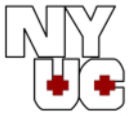New York diagnostic center
We will all almost certainly experience a diagnostic test at some point in our lives. With earlier treatment and better outcomes, early detection of many diseases is now possible thanks to technological advancements in the diagnostics area. Additionally, more diseases than ever before can be prevented with modern screening techniques.
Although a proper diagnosis and early screening can save your life, diagnostic tools also have other uses. In order to determine whether and how well the treatment is functioning, they are also used to track its progress.
Are you trying to find a reputable and cutting-edge diagnostic center in New York? Do you suffer from sudden shoulder, knee, back, or neck pain? Well, when it comes to receiving precise care and testing in the least amount of time, New York Urgent Care will always be your first choice.
Additionally, we position ourselves as the trustworthy east New York diagnostic center and treatment center where we reveal the genuine nature of the disorders so that they may be treated as effectively as possible.
The 12 types of diagnostic services offered by NYUCC.
1. Respiratory Pathogens
A respiratory pathogens (RP) panel scans the respiratory tract for pathogens. A virus, bacteria, or other organism that causes disease is referred to as a pathogen. The components of your respiratory tract are those that are engaged in breathing. Your throat, nose, and lungs are included in this.
2. Toxicology/Drug Testing
In urgent medical settings, this test is frequently administered. It can be used to assess potential poisoning or overdose, whether accidental or purposeful. Determine the presence of drugs in the body for medical or legal purposes, monitor drug dependence, and help identify the source of acute drug poisoning.
3. Cardiovascular Test
A Cardiovascular test is performed to detect heart conditions. Cardiac blood tests can provide your doctor with information about how well your heart is working. Your doctor can estimate your risk of cardiovascular disease by adding this data to your medical history and family history. Some tests, such as those that assess cholesterol, are often performed.
4. Pharmacogenetic Testing (PGx)
Pharmacogenetic (PGx) testing reveals how a person’s genetic makeup affects their capacity to digest and react to drugs. With this knowledge, you can adjust a patient’s drug regimen based on their genetic composition.
5. Flow Cytometry
The characteristics of cells or particles in the body are examined in a laboratory test called flow cytometry. A sample of cells or other particles is injected into a flow cytometer system while suspended in liquid. In less than a minute, a computer can analyze and process about 10,000 cells.
6. Molecular Oncology
A person’s risk of acquiring cancer or other diseases can be examined using molecular testing to look for specific mutations in a gene or chromosome. Some kinds of cancer may be diagnosed using molecular testing in conjunction with other procedures, such as biopsies.
7. Functional Medicine
Functional medicine testing aims to find the fundamental biochemical and metabolic imbalances that may be the cause of a disease process. Digestive, absorptive, and microbiological abnormalities are a few examples of such disorders.
8. Gastroenterology
You can be given an X-ray, a CT scan, or blood and stool tests by the gastroenterologist. You might get a stool test. A stool culture, among other things, may assess how effectively your body absorbs and utilizes fat. Your motility may also be examined as how food moves through your digestive system.
9. Infectious Diseases
Blood tests are techniques used to find the source of an illness in the blood and detect it. Bacteria (bacteremia) are the most frequent cause of bloodstream infections, although fungi (fungemia) and viruses can also cause bloodstream infections (viremia).
10. Pediatrics
Pediatrics are performed regularly to check babies, and infants to screen largely for growth and development abnormalities. It examines sick infants by establishing the nature and cause and extent of any illness or injury.
11. Urology
Medical disorders affecting the male and female urinary tract systems are the main focus of the medical specialty of urology. In the past, medical professionals would look for information about a patient’s ailment through a urine test.
12. Pathology
By analyzing samples of biological tissues and bodily fluids, pathology tests are specialized medical procedures that assist in identifying the origin and type of diseases. The outcomes of these pathology tests assist medical professionals in making accurate diagnoses and prescribing effective therapies.
NYUCC, the best New York diagnostic center, has been offering comprehensive diagnostic treatment for illnesses ever since we started working in the healthcare industry. Regarding the issue at hand, New York Urgent Care, an east New York-based diagnostic and treatment facility, provides all the 12 tests mentioned above. Schedule your test now, or you can walk in at any time to our New York diagnostic center.

